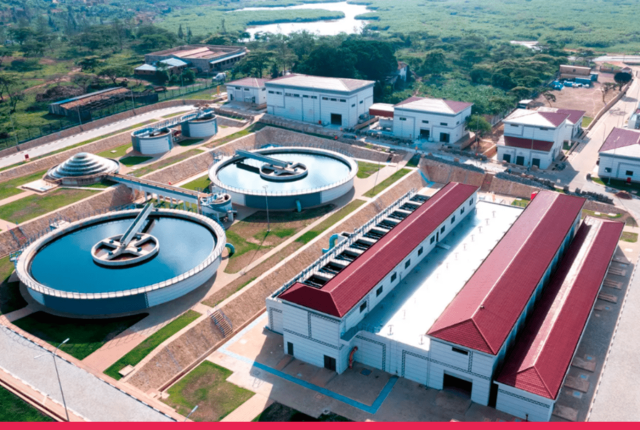
Building Local Capacity for PPPs: Empowering African Governments and Businesses
Public-Private Partnerships (PPPs) are Africa’s ticket to closing its $100 billion annual infrastructure gap (AfDB). From Kenya’s Nairobi Expressway to Morocco’s Noor Solar Complex, PPPs deliver roads, power, and ports that fuel economic growth. Yet, their success hinges on one critical factor: local capacity. Weak skills in project preparation, procurement, and management often stall projects—only 15 African countries have dedicated PPP units (AfDB, 2022). Building expertise in governments and businesses is the key to unlocking sustainable PPPs. This blog post explores the essential skills for effective PPP implementation—project appraisal, procurement, financial modeling, project management, and legal frameworks—and outlines practical ways to develop these competencies. Aimed at policymakers, businesses, and development advocates, here’s how capacity building can empower Africa’s infrastructure future.
Why Capacity Building is Critical for PPP Success
Africa’s infrastructure ambitions, like the $25 billion LAPSSET Corridor, demand sophisticated skills to navigate complex deals. Yet, 60% of African governments lack expertise in PPP structuring (World Bank), leading to delays, cost overruns, or lopsided contracts. For businesses, especially SMEs, missing skills mean lost contracts—35% of bids fail due to non-compliance (KIPPRA, 2023). Capacity building bridges these gaps, empowering public and private sectors to deliver projects that drive trade, create jobs (100,000 per $1 billion invested, AfDB), and boost GDP by 2.5% annually (World Bank). It’s not just training—it’s economic empowerment.
Key Skills for Effective PPP Implementation
1. Project Preparation and Appraisal
Robust preparation ensures “bankable” projects. This involves feasibility studies, cost-benefit analyses, and Environmental and Social Impact Assessments (ESIAs). Weak appraisals—like Uganda’s delayed $1.5 billion hydropower PPP—risk investor pullouts.
- Solution: Train officials in ESIA tools and financial forecasting, as seen in Rwanda’s Kigali Bulk Water Project, where IFC-guided appraisals secured $60 million.
2. Procurement and Contract Negotiation
Transparent procurement and savvy negotiation prevent corruption and ensure fair deals. Kenya’s 2021 PPP Act mandates open tenders, but only 20% of officials are trained in advanced procurement (AfDB).
- Solution: Workshops on standardized contracts, like those for Zambia’s Scaling Solar, cut tender times by 50% and attracted $150 million in private capital.
3. Financial Modeling and Risk Management
PPPs require complex financial models to balance risks—political, currency, or demand—between partners. Nigeria’s $400 million Lekki Toll Road succeeded due to IFC’s risk-sharing models, but such expertise is scarce.
- Solution: Develop modeling skills via DFI-led courses, ensuring equitable risk allocation.
4. Project Management and Monitoring
Effective oversight keeps projects on track. Poor monitoring led to cost overruns in Ethiopia’s $4 billion Grand Ethiopian Renaissance Dam. Tools like performance dashboards ensure accountability.
- Solution: Train managers in real-time monitoring, as Morocco’s Noor Solar Complex used to deliver 580 MW on budget.
5. Legal and Regulatory Frameworks
Clear laws attract investors. Only 10 African countries have comprehensive PPP laws (AfDB), risking disputes or cancellations. Kenya’s 2021 PPP Act amendments show how clarity drives success.
- Solution: Build legal expertise to align with IFC Performance Standards, boosting investor trust.
Strategies to Build Local Capacity
Leverage DFI Technical Assistance
Development Finance Institutions (DFIs) like the World Bank, IFC, and AfDB are capacity-building powerhouses. The AfDB’s 2020 PPP Framework Workshop trained 200 officials across 10 countries, priming 20 projects. IFC’s Advisory Services in Zambia’s Scaling Solar standardized contracts, empowering local regulators.
- Action: Partner with DFIs for tailored training—AfDB’s ALSF offers legal support for contract drafting.
Establish PPP Training Institutes
Dedicated institutes can scale expertise. South Africa’s PPP Training Programme, run by the National Treasury, has trained 1,000 officials since 2010, enabling projects like the $2 billion Gautrain.
- Action: Create regional PPP academies, as proposed by AU’s PIDA, to train 5,000 professionals by 2030.
Foster Public-Private Collaboration
Businesses need skills to compete for PPP contracts. Kenya’s LAPSSET Corridor trained 500 SMEs in Lamu on procurement, with 70% securing port-related jobs (LCDA, 2022).
- Action: Launch SME incubation hubs, like Isiolo’s planned LAPSSET center, to connect local firms with global partners.
Use Digital Platforms for Scalability
Online training democratizes access. The World Bank’s Open Learning Campus offers PPP courses, reaching 10,000 African learners since 2020. Digital dashboards, like those for Ghana’s $300 million Tema Port, track compliance.
- Action: Adopt e-learning for procurement and monitoring skills, targeting rural businesses.
Engage Communities for Inclusive Capacity
Local buy-in prevents resistance. LAPSSET’s $10 million fund trained and employed Lamu youth, reducing protests. Community training ensures social safeguards align with IFC PS7 (Indigenous Peoples).
- Action: Integrate locals into PPP planning via stakeholder forums, as Ghana did for Tema Port.
Success Stories: Capacity Building in Action
Kenya’s Nairobi Expressway
The $600 million PPP trained 300 local engineers in project management, cutting delivery time by 20% (Kenya Roads Board). SME suppliers, coached by the Kenya Association of Manufacturers, won 30% of contracts, boosting local economies.
Nigeria’s Lagos-Ibadan Railway
AfDB’s technical assistance upskilled 150 officials in risk modeling, securing $1.5 billion from China Exim Bank. Local firms, trained in procurement, supplied 25% of materials, creating 10,000 jobs.
Burkina Faso’s PPP Pipeline
A 2022 World Bank workshop trained 50 officials, leading to 20 bankable PPPs in energy and transport. This model shows how capacity building primes investment.
Challenges and Opportunities
Challenges: Scaling and Retention
- Limited Reach: Only 15% of African officials access PPP training (AfDB).
- Brain Drain: Trained talent often migrates—20% of skilled Africans work abroad (UN).
Opportunities: Regional Synergy
- AU and RECs: Leverage Agenda 2063 and EAC/IGAD for continent-wide training hubs.
- Digital Upskilling: Online platforms can reach 1 million learners by 2030 (World Bank).
- Youth Dividend: Africa’s 60% youth population is eager for skills—tap them for PPP roles.
Actionable Advice for Stakeholders
- Governments: Fund PPP training institutes—model on South Africa’s success.
- Businesses: Join DFI-led workshops or AGPO for procurement access (30% SME quota).
- Policymakers: Integrate PPP skills into national curricula, targeting 10,000 trainees by 2030.
- DFIs: Scale digital platforms for broader reach—focus on SMEs and rural areas.
FAQ: Capacity Building for PPPs
Q: Why is capacity building key for PPPs?
A: It equips governments and businesses to manage complex projects, avoiding delays and disputes.
Q: How can SMEs benefit?
A: Training in procurement and partnerships, like LAPSSET’s, unlocks contracts—30% of Kenya’s PPPs go to locals.
Q: What’s the biggest hurdle?
A: Limited training access—only 15% of officials are skilled (AfDB).
Summary: Empowering Africa’s PPP Future
Capacity building is the linchpin for Africa’s PPP success, turning infrastructure dreams into reality. By mastering project preparation, procurement, financial modeling, management, and legal frameworks, African governments and businesses can drive sustainable growth. Successes like Nairobi’s Expressway and Nigeria’s railway prove it works. The path forward demands DFI partnerships, training institutes, and digital tools. For stakeholders, the call is clear: invest in skills, seize PPP opportunities. Share this post, subscribe for more, or enroll in a PPP training today—Africa’s infrastructure future starts with you.



Leave a Reply